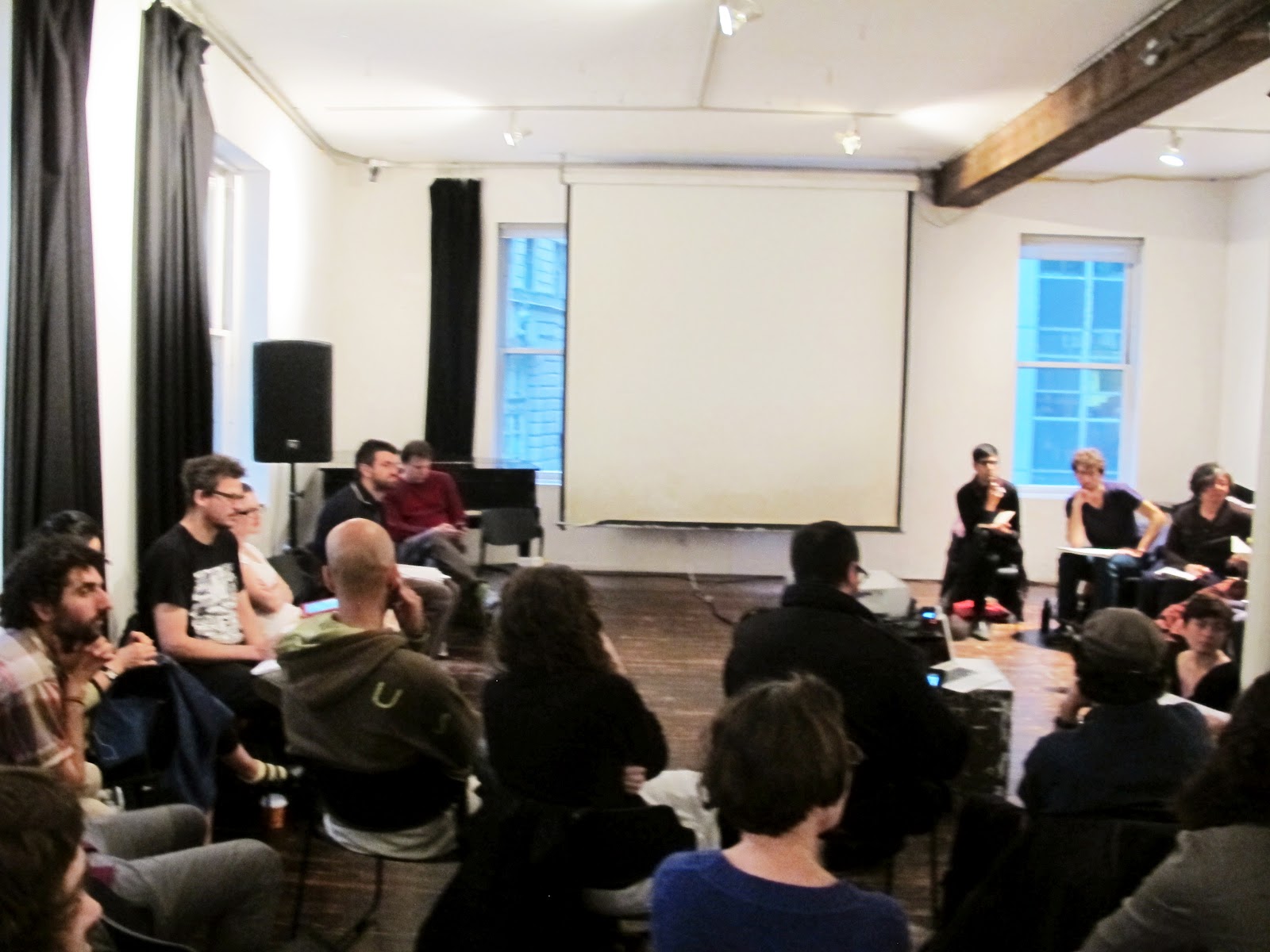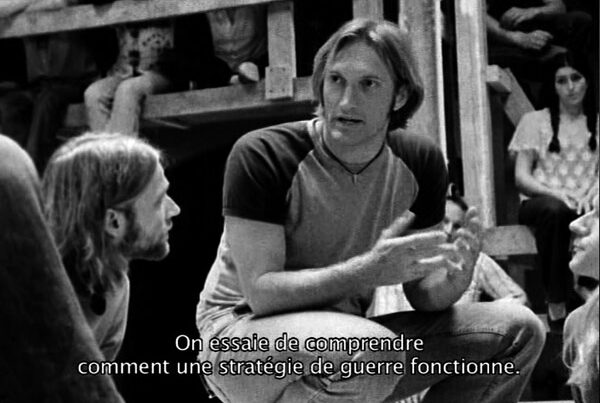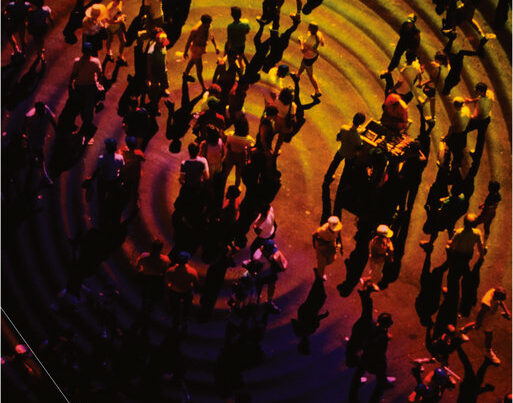Monday — 07.21.14 – Diplomatic f(r)ictions with ‘le peuple qui manque’
CONTENTS:
0. About Monday
1. About ‘le peuple qui manque’
2. Links and readings
__________________________________________________
0. About Monday
What: Meeting / Presentation / Conversation
When: Monday July 21, 7pm
Where: 16 Beaver St., 4th Floor
Who: Free and Open to all
This Monday, we will have a conversation with Kantuta Quirós and Aliocha Imhoff from the Paris-based curatorial collective ‘le peuple qui manque.’ The conversation will bridge their ongoing concerns with art and the geopolitics of knowledge, with many current conversations at 16 beaver.
The following quote by Gilles Deleuze may best express these overlapping concerns, just as it has served as inspiration for the very name of this collective:
“This acknowledgement of a people who are missing is not a renunciation of political cinema, but on the contrary the new basis on which it is founded, in the third world and for minorities. Art, and especially cinematographic art, must take part in this task: not that of addressing a people, which is presupposed already there, but of contributing to the invention of a people. The moment the master, or the colonizer, proclaims ‘There have never been people here’, the missing people are a becoming, they invent themselves, in shanty towns and camps, or in ghettos, in new conditions of struggle to which a necessarily political art must contribute. (…) The cinema author finds himself before a people which, from the point of view of culture, is doubly colonized: colonized by stories that have come from elsewhere, but also by their own myths become impersonal entities at the service of the colonizer. The author must not, then, make himself into the ethnologist of his people, nor himself invent a fiction which would be one more private story: for every personal fiction, like every impersonal myth, is on the side of the ‘masters’. (…) There remains the possibility of the author providing himself with ‘intercessors’, that is, of taking real and not fictional characters, but putting these very characters in the condition of ‘making up fiction’, of ,making legends’, of ‘story-telling’. The author takes a step towards his characters, but the characters take a step towards the author: double becoming. Story-telling is not an impersonal myth, but neither is it a personal fiction: it is a word in act, a speech-act through which the character continually crosses the boundary which would separate his private business from politics, and which itself produces collective utterances.”
Gilles Deleuze, Cinema 2. The Time-Image – Editions de Minuit, 1985. University of Minnesota Press
__________________________________________________
1. About ‘le peuple qui manque’
Le peuple qui manque (A people is missing) is a curatorial platform based in Paris, France. It was created by Kantuta Quiros and Aliocha Imhoff in 2005, and operates at the intersection of contemporary art and research. Le peuple qui manque was at the initiative of numerous projects, such as events, exhibitions, publications, international symposiums, film screenings and so on. Among their recent projects : Among their recent projects (2010-2014): Afropolitan Histories of Art (Review Multitudes, issue 53-54, Spring 2014), Géoesthétique (collective book, 2014, B42); Trial of a Controversy – Jan Karski : History & Fiction (HEAD Geneva, 2014); A Thousand Years of Nonlinear History (2013, Centre Pompidou); Make an Effort to Remember. Or, Failing That, Invent. (exhibition, Bétonsalon – Center for art and research, 2013) ; The Artist as Ethnographer (musée du quai Branly and Centre Pompidou, 2012) ; What is to be done ? – art/film/politics (Centre Pompidou, 2010), and so on. Le peuple qui manque also edits and distributes artists’ films.
Since 2010, le peuple qui manque has engaged a series of projects dedicated to the idea of contemporary art as a site of knowledge production. Accompanying a postmodern turn in social sciences, this focus sees contemporary art as a laboratory for the renewal of scientific paradigms, technologies of writings, sometimes capable of challenging forms of authority and regimes of veridiction within scientific fields (such as Ethnography, History or Geography). It can also overcome the difficulties of scientific disciplines in rendering certain archives and so-called ‘minor knowledge’ intelligible and legible. The voices and presence of minorities as political subjects acquire, in art, a heuristic and political value, capable of reformulating a new “ecology of knowledges”. The recent book they edited Géoesthétique emerged from these thoughts and looks back at the spatial turn in contemporary art, both within cartographic and geographic artistic practices today and spatialization of art history. Pursuing these thoughts, they are presently developing a new series of projects, in the form of scenographies of recent aesthetic controversies, considering curatorial practice as a display of theory, as well as fictional diplomacy, a diplomacy between antagonistic fields of knowledge.
__________________________________________________
2. Links and readings:
Most of ‘le peuple qui manque’s texts and publications exist in French, but we include here a few links with short descriptions and information on a few relevant works
https://www.lepeuplequimanque.org/en/textes
https://www.lepeuplequimanque.org/en/geoesthetique
https://www.lepeuplequimanque.org/en/histoires-afropolitaines-multitudes-53-54.html
https://www.lepeuplequimanque.org/en/images-documentaires.html
https://www.lepeuplequimanque.org/en/cahiers-mnam122-barriendos.html
—
https://16beavergroup.org/
https://16beavergroup.org/mondays/2014/07/18/monday-07-21-14-geo-aesthetics-and-politics-with-le-peuple-qui-manque/
Thanks : 16 beaver, Pedro Lasch


